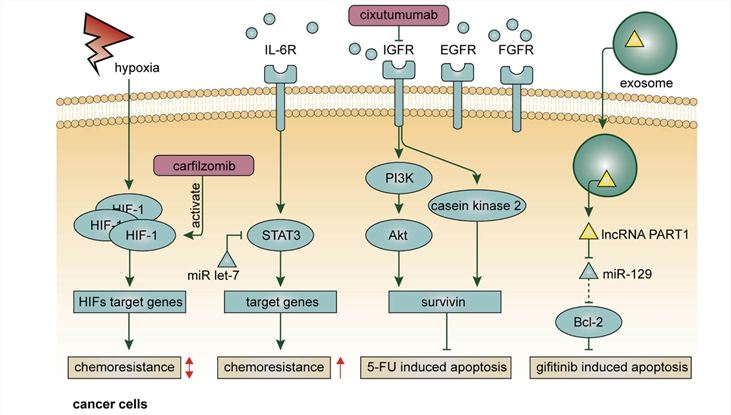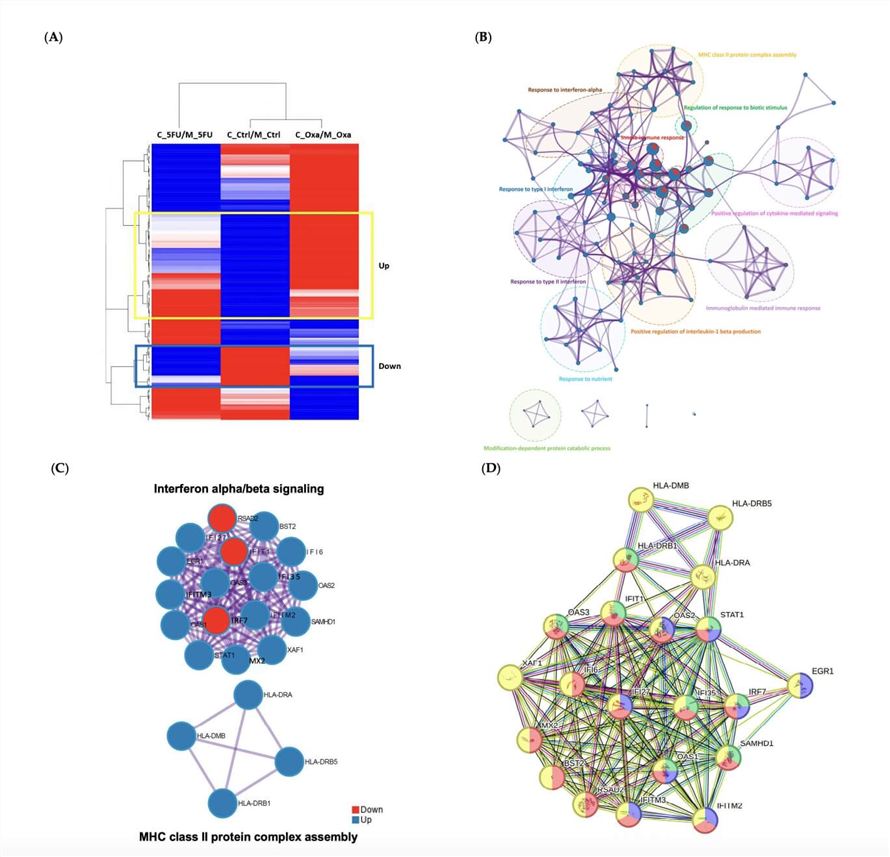Creative Biolabs has a thorough grasp of the market and specializes in offering services for analyzing cancer microenvironment-mediated resistance. Our goal is to assist customers in obtaining important data regarding their cancer diagnosis and treatment choices. Our skilled team is prepared to help you navigate the intricate world of cancer biology and create custom plans for overcoming treatment resistance.
Introduction
Cancer resistance is a major challenge in the field of oncology, limiting the effectiveness of treatment and ultimately impacting therapy outcomes. At Creative Biolabs, we understand the importance of overcoming this obstacle, which is why we are proud to offer our cutting-edge cancer microenvironment-mediated drug resistance analysis services.
Our comprehensive service includes the evaluation of key factors such as tumor heterogeneity, stromal cells, immune cells, and signaling pathways, all of which can influence response to treatment. Up to now, our advanced technologies have access to a vast array of supporting data. Our various equipment allows us to conduct detailed molecular profiling and multi-omics analysis, providing a wide collection of analyses on the mechanisms of drug resistance. Moreover, our extensive database of samples and data enables us to validate our findings and tailor our recommendations to each project.
 Fig.1 The Resistance Mechanisms in The Tumor Microenvironment.1,3
Fig.1 The Resistance Mechanisms in The Tumor Microenvironment.1,3
Services
The cancer microenvironment has been increasingly recognized for its role in mediating drug resistance, and understanding its complexities is essential for developing successful treatment strategies. Cancer microenvironment-mediated drug resistance analysis services involve studying the complex interactions between tumor cells and their surrounding environment to understand how these interactions influence the response of cancer cells to various drugs. By analyzing the tumor microenvironment, Creative Biolabs can identify key factors that contribute to drug resistance, such as the presence of immune cells, fibroblasts, and extracellular matrix components. Our main services include but not limited ed to:
-
Genomic profiling for targeted therapy selection;
-
Biomarker analysis for predicting drug response;
-
Drug resistance mechanism identification through cell line models;
-
Various PDX models for studying therapy resistance;
-
Multi-omics analysis for personalized treatment strategies;
-
Drug screening assays to identify potential drug combinations;
-
Molecular imaging techniques for monitoring treatment response;
-
Immune profiling to assess immunotherapy resistance mechanisms;
-
Customized drug sensitivity testing for individualized treatment plans.
These analysis services typically include a combination of in vitro and in vivo experiments, as well as molecular profiling techniques to characterize the various components of the tumor microenvironment. In our labs, in vitro experiments may involve co-culturing tumor cells with different cell types to mimic the tumor microenvironment, while in vivo experiments may include xenograft models or patient-derived tumor samples. In the past few years, we have identified potential therapeutic targets to overcome resistance improve the efficacy of cancer treatments, and develop novel therapy approaches.
Why Choose Us?
Creative Biolabs combines our expertise in cancer biology, molecular profiling, and bioinformatics to offer a full range of microenvironment-mediated drug resistance analysis services. Our scientists are dedicated to providing accurate and reliable results to support your research and drug development efforts. Trust us to deliver high-quality data and insights that will help you make informed decisions in the fight against cancer.
-
Comprehensive analysis of tumor microenvironment components that contribute to drug resistance;
-
Identification of key signaling pathways involved in microenvironment-mediated drug resistance;
-
Evaluation of the role of immune cells in modulating drug response in the tumor microenvironment;
-
Assessment of stromal cells and their impact on drug efficacy in cancer;
-
Analysis of extracellular matrix components and their influence on drug resistance;
-
Examination of hypoxia and its effects on drug sensitivity in the tumor microenvironment;
 Fig.2 The Drug Resistance Genes Analysis of 154 Co-culture Significant Genes.2,4
Fig.2 The Drug Resistance Genes Analysis of 154 Co-culture Significant Genes.2,4
Creative Biolabs is ready to guide you through the complex landscape of cancer biology and develop new strategies to overcome cancer resistance. We specialize in providing services to analyze resistance mediated by the cancer microenvironment. Please contact us to learn more about our cancer microenvironment-mediated drug resistance analysis services and how can we assist you in rapidly progressing your research.
References
-
Luan, Siyuan, et al. "Advances in drug resistance of esophageal cancer: from the perspective of tumor microenvironment." Frontiers in Cell and Developmental Biology 9 (2021): 664816.
-
Ryu, Kyoung-Bin, et al. "Drug-Resistance Biomarkers in Patient-Derived Colorectal Cancer Organoid and Fibroblast Co-Culture System." Current Issues in Molecular Biology 46.6 (2024): 5794-5811.
-
Image retrieved from Figure 2 "Resistance mechanisms of non-cellular components in the tumor microenvironment in EC." Luan et al., 2021, used under CC BY 4.0 (https://creativecommons.org/licenses/by/4.0/). The title was changed to "The Resistance Mechanisms in The Tumor Microenvironment."
-
Image retrieved from Figure 5 "Potential drug resistance genes among 154 co-culture significant genes." Ryu et al., 2024, used under CC BY 4.0 (https://creativecommons.org/licenses/by/4.0/). The title was changed to "The Drug Resistance Genes Analysis of 154 Co-culture Significant Genes."
For Research Use Only | Not For Clinical Use


 Fig.1 The Resistance Mechanisms in The Tumor Microenvironment.1,3
Fig.1 The Resistance Mechanisms in The Tumor Microenvironment.1,3
 Fig.2 The Drug Resistance Genes Analysis of 154 Co-culture Significant Genes.2,4
Fig.2 The Drug Resistance Genes Analysis of 154 Co-culture Significant Genes.2,4
 Download our brochure
Download our brochure